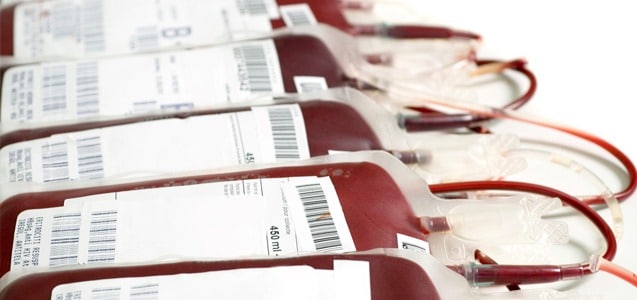
Mismatched Blood Transfusion And Transfusion Reaction
A blood transfusion is a common medical procedure in which donated blood is provided to a patient through a narrow tube (IV catheter) placed within a vein in the arm. Blood transfusions become medically necessary for many reasons, including a need to replace blood in patients who suffer significant bleeding as the result of a major surgery or accidental injury. Blood transfusions are also needed by patients with blood disorders which interfere with their body’s ability to manufacture blood and/or blood components, such as blood platelets.
The four major blood groups (A, B, AB, and O) are determined by the presence or absence of specific antigens (on the surface of red blood cells) and specific antibodies (in the blood plasma). Every person has an ABO blood type, and is either blood type A, B, AB or O. In addition, all blood is designated by its Rh factor, depending on whether or not it contains another blood cell surface antigen, called the Rh factor. Blood is either Rh-positive (if the Rh factor antigen is part of the surface of its red blood cells) or Rh-negative (if its red blood cells do not include Rh factor antigens). There are very precise ways in which blood types must be matched for a safe transfusion. The blood donor and the recipient must have their blood types checked and cross-matched to ensure that the recipient’s immune system will not attack the donor blood.
If incompatible blood is given during a transfusion (donor and recipient blood types do not match), the donor cells are treated as if they were foreign invaders, and the patient’s immune system attacks them accordingly. This creates life threatening complications for the patient. If a transfusion reaction occurs, it renders the blood transfusion useless and can cause a potentially overwhelming activation of the transfused patient’s immune system and blood clotting system. This may result in the patient going into shock, kidney failure, circulatory collapse, and death.
The safe and effective administration of blood transfusion procedures involves the coordinated care of a variety of professional groups including nurses, doctors, laboratory scientists and blood banks. With that being said, there is absolutely no excuse for a patient receiving an incompatible blood transfusion. This preventable, careless medical mistake is often referred to as a “never event” – a patient treatment error that should under no circumstances occur.
If you or a loved one feel you are the victim of a medical mistake, contact The Yost Legal Group today at 1-800-YOST-LAW (800-403-7259). When you call, you will speak with an experienced Baltimore Medical Malpractice attorney absolutely FREE.
The attorneys at Yost Legal Group are experienced, caring professionals ready to investigate your claim with compassion and determination. Call us today to receive a free, confidential consultation about your possible case. At The Yost Legal Group, there is no fee or expense unless you recover.